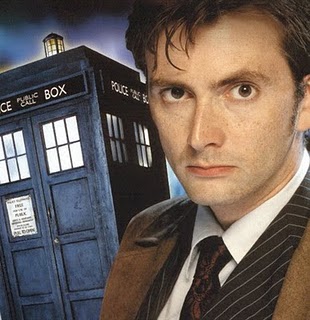Copyright!
on 01.20.12
Description from the link: "In 2009, Casey Pugh asked thousands of Internet users to remake "Star Wars: A New Hope" into a fan film, 15 seconds at a time. Contributors were allowed to recreate scenes from Star Wars however they wanted. Within just a few months SWU grew into a wild success. The creativity that poured into the project was unimaginable."
The video is the result of selections from the 15-second bits being stitched together into a version of the entire movie.
Something happened
on 01.20.12
As, yesterday afternoon, I and rfts were walking from campus to a nearby café, I noticed on the ground a condom, or rather a condom wrapper, apparently (viewed only from the top) intact, and presumably containing a condom which was itself intact.
Today, walking in the same direction to class, I noticed on the ground in roughly the same place a condom—not, that is, a condom wrapper, but an actual no-foolin' condom. The wrapper was not in evidence.
One can only speculate at what precisely went wrong there.
Look, an asshole in Texas!
on 01.20.12

That teeny sign hanging from the front walk says "We Don't Call 911" and yes, that's a gun under it. So I decided not to creep closer for a better photo.
Kids and the colors
on 01.20.12
I remember reading this article Why Johnny Can't Name His Colors, when Hawaiian Punch was about a year old. The gist of it is that 2-3 year olds basically don't know their colors, and that it's a really hard concept to learn, but it seems so easy to parents that we over-guide our kids into the right answer, and convince ourselves that they know it. The article goes into why it's actually quite a difficult concept.
So I had a pre-verbal toddler and I took the article at face-value and thought (smugly) "Well, I'll know the truth, and won't be fooled into thinking my kid knows her colors."
Now Hawaiian Punch is 2 1/2, and I have to wonder if the people conducting the study were smoking crack. She knows her colors. Really. So do the toddlers in her class. When they say "No! I don't want the striped yellow and green cup, I want the red one!" they are not getting lucky, or guided by teachers or parents. What the hell is going on with that article?
Obnoxious trends in architecture
on 01.19.12
Store fronts have tripled in height since I was growing up, haven't they? Is this an urban sprawl thing? If you've got a strip mall in the center of an ocean of parking, then it needs a false front to keep it from looking sad, or something. Some of these store facades look like saloons to me.
For example:

whereas they used to look more like:

Make yourselves at home
on 01.19.12
Over break, Jammies and I entrusted our cat and plants to the college students next door. We left them a note with all the details, and at the bottom I wrote "Please help yourself to any food, especially anything perishable!"
They certainly did. They even cooked some. First, this is completely okay with both of us. It's a good thing that they ate the food. But Jammies' reaction is "Not that I mind, but who does that? Even if I were invited to, I just never would have eaten someone's food."
I just find the whole thing very funny, because obviously they were super stoned, in my opinion. Also, one of them used the toilet, and dropped anchor, despite being told that the water was turned off to the house. I imagine they felt bad for our lonely, lonely cat, smoked out and came over and watched TV a few times, and made themselves at home, and probably a third party who hadn't read the note, like a boyfriend, used the bathroom. But it is great! The house looks like it's got some activity, to anyone snooping, and the cat gets some needed TLC. Still, amusing to me.
(If it had been me, I would have eaten ~30% of any chocolate or candy I could find, and probably would have taken a book over, to read on the couch a few times, out of pity for the cat.)
In Case You're Wondering What It's Like Being Really Bad With Faces
on 01.19.12
Communicating subjective experience is generally hard, but I just ran into a nice example of exactly what it feels like to look at someone and have no idea if I've met them before or not. (Also, of what it's like to be a terrible, terrible eyewitness.)
I was watching Dr. Who during some downtime at Sally's interminable swim meet last weekend (the pool has wifi. They understand what swim meets are like.) As I'm sure most of you know, the title character in Dr Who is played by a new actor every couple of years, and the last two, while they have no real resemblance to each other, are both played by tallish thinnish youngish brown-haired men.
Something during the episode I was watching harked back to an earlier episode, and I realized that while I was looking at this guy:

I couldn't remember at all what this guy:

looked like.
Looking at pictures of the both of them, they don't look much alike at all, and I have no trouble remembering which is which. But if I'm only looking at Matt Smith, I can't remember David Tennant's face, despite having watched a couple of dozen episodes of an hourlong TV show he starred in; the rough resemblance of tallish, thinnish, youngish,brownhaired man in a suit in a similar context is enough that the face I'm looking at blocks my recollection of someone else in that category.
In this case, of course, I knew who I was looking at, and knew that there was a different person, with a different face, who I was trying to remember (and could google for pictures of both). In real life, though, when I run into someone I don't know well, I panic -- "That looks kind of like someone I've met before. Given the way my memory works, that doesn't tell me anything at all about whether they are the person I'm thinking of, or whether they just look sort of vaguely similar to someone I've met before." And I stare blankly at them until they cue me in. If I were an eyewitness to a crime committed by Matt Smith, and they put David Tennant in the lineup, I'd probably send him to jail without hesitation, unless I were focusing on how bad I am at this sort of thing.
For all of you who don't have trouble with faces, this is what it's like. All you people, regardless of race, creed, or color, pretty much look alike to me.
Car advice
on 01.18.12
(I have a stupid privileged middle-class lifestyle with stupid problems that reflect my privilege.) Glad we got that out of the way!
My parents are offering to give us their 1998 Ford Expedition. My car is currently dying a painful death. The next car we own needs to have a third row of seats, so that we can house an excess of car seats.
I feel obligated to accept the Expedition, because of the FREE, but I really don't want to drive something so big. I'd much rather drive one of the smaller versions of a vehicle with a third row of seats. (I think Ford Flexes are really cute, but that's just incidental.)
Is it obscene to turn down a free car?
Gossip
on 01.17.12
It's weird how reading someone's blog really makes you feel like you know them. I haven't read Dooce in probably a year, but I happened to click over, and found that she and Jon are announcing a trial separation, and it made me kind of sad to read about.
(Years and years ago I listened to Howard Stern regularly, and when he announced his divorce it was surprisingly sad, sincere and upsetting.)
Guest Post - Witt
on 01.17.12
If you've ever had to care for a very young or a very old person, you've probably had to clean up poop. It's not a fun job, especially if you're doing it for a stranger. Welcome to the world of home health aides.
Sometimes called personal care attendants, these workers take on the difficult task of feeding, bathing, and caring for people who are elderly or disabled but want to stay in their own homes. In the last 30 years, as the American population has aged, the number of home health workers has grown to nearly 2 million people.
Yet these workers are not covered by the most basic federal fair-labor laws. No guaranteed minimum wage, no overtime.
In 2007, a home care worker named Evelyn Coke took her case for overtime all the way to the Supreme Court. She lost, 9-0. The justices said it was up to Congress or the Department of Labor to change the rules.
Well, they're trying. And that's where you come in. You can submit a public comment in support of the new proposed rules.
(Of course, you could comment against the rules, too -- but remember, the odds are that someday someone will be cleaning up your poop. And it's probably not going to be your mother or father.)
An editorial on why this matters. An NPR story and transcript. And a link to the Direct Care Alliance.
NPR sucks
on 01.17.12
Via M/tch, NPR hack apologizes for Wall Street.
For a while, I've been thinking about writing a piece on how NPR is more toxic than Fox News. Fox preaches to the choir. NPR, though, confuses and misinforms people who might otherwise know better. Its "liberal" reputation makes palatable a deeply orthodox message for a demographic that could be open to a more critical message.
The full critique will take some time. But a nice warm-up opportunity has just presented itself: a truly wretched piece of apologetic hackery by Adam Davidson, co-founder of NPR's Planet Money economics reporting team, that appears in today's New York Times magazine.
It is especially infuriating that NPR sucks for exactly the reason above, that the audience would be receptive to better reporting.
Joe Don't Know
on 01.16.12
I'm behind on my internetting. Has this, the blog's favorite newspaper's interview with Paterno, come up in comments already?
I found this part puzzling:
"You know, he didn't want to get specific," Paterno said. "And to be frank with you I don't know that it would have done any good, because I never heard of, of, rape and a man.
That ignorance strains credulity, but maybe it's possible? Maybe?
What's so bad about ephemera anyway?
on 01.16.12
Is our resident radical a partisan of that old saw, that a worthy artwork is aere perennius? Perhaps, perhaps; after all, if anything can make a plausible bid to be more enduring than bronze, it is human nature, so that if a work of art really is politically good for its encounterers1 in the sense of improving their abilities to live with and among one another, that work may, parasitically, itself be enduring. Except that clearly makes no sense, because (a) an ephemeral thing may have that effect and (b) the thing itself may not be ephemeral by nature (as window dressing is) but could still be ephemeral in fact (as everything is).
One might rather have thought that the ephemeral, owing to its (in at least one sense) insubstantiality, would be preferable! Nothing can't be commodified, perhaps, but it's easier to trade in a physical object that lasts than one of Calvin's snowmen (for instance). The production of things that don't last is awfully non-productive, but, again, so what? Isn't, in fact, ephemerality an important part of some artistic productions/aesthetic experiences? Take it away, Yoshida Kenko:
Are we to look at cherry blossoms only in full bloom, the moon only when it is cloudless? To long for the moon while looking on the rain, to lower the blinds and be unaware of the passing of the spring—these are even more deeply moving. Branches about to blossom or gardens strewn with faded flowers are worthier of our admiration. Are poems written on such themes as "Going to view the cherry blossoms only to find they had scattered" or "On being prevented from visiting the blossoms" inferior to those on "Seeing the blossoms"? People commonly regret that the cherry blossoms scatter or that the moon sinks in the sky, and this is natural; but only an exceptionally insensitive man would say, "This branch and that branch have lost their blossoms. There is nothing worth seeing now."
If the trees remained in bloom all the time, the insensitive man would have no cause to complain, but surely even he would find the blossoms less charming for their endurance. Also, let us note how happy the sentence "this branch and that branch have lost their blossoms" is; it is far better than "these branches …" or "this branch and that one …" or even "this branch and that …". Why do you suppose that is, question mark.
1. Of course the thing about improving art is that it only improves those who encounter it, supposing it improves anyone, and who exactly goes to shows of improving art? One always suspects that the patrons think, on encountering such works, "oh, how improving all this is!" having in mind the effects it would work on people who are precisely not there.
Rambling About A Probably Perfectly Obvious Distinction Between Two Kinds Of Inequality For MLK Day
on 01.16.12
There's a particularly annoying right-wing trope that finally made sense to me recently: "We believe in equality of opportunity, not equality of outcomes." That is, all the inequality in the world is fine, nothing wrong with people eating rotting garbage out of the gutters, so long as the process by which it's determined who ends up eating rotting garbage and who ends up in a corporate jet is fair. And of course that doesn't work: so long as children are raised by their parents, and parents transfer resources to their children, children raised by parents under wildly unequal circumstances can't possibly have equal opportunities. Statistics showing that the US has both unusually high inequality and unusually low social mobility for a developed country tend to bear this out -- if your parents can't afford for you to get a good education and the rest, you're not leaving your social class of origin. (And even if it could work, if you could have a terribly unequal society where everyone still had an equal opportunity to end up on top, it would still be unjust. I don't particularly care why someone's living in miserable conditions, or whose fault it is. I want everyone living in reasonable comfort, by the standards of the society they live in, rather than by the standards of what someone in 1579 would be happy to have.)
But it is possible to change how much unfairness there is in how opportunities to rise to the top are handed out, independently of reducing overall inequality. There's a serious limit to what you can do -- there's no way to give children who have been deprived of equal access to health care, education, and other resources equal opportunities for success -- but there are some kinds of inequality that can be eliminated independently of economic inequality. The US is much, much more equal in terms of opportunity for African Americans, women, gays, members of minorities generally than it was fifty years ago, even while it's gotten less economically equal (which is the basis for the right-wing claptrap about how equality of opportunity is the only important thing). And that's a real gain in itself -- a society with very low economic inequality but Jim Crow laws would still be an evil one to live in.
I'm mostly just getting this straight in my head, but where I wanted to get to is that there's no necessary reason for that to be a tradeoff. There's not a fixed amount of inequality that any society is going to have, such that it can either be economic inequality or inequality based on some non-economic status. But while it's not a tradeoff, working on one kind of inequality doesn't necessarily make any progress at all on the other kind -- the incredible advances in, say, gay rights over the last thirty years haven't either hurt or helped poor people in the US, except to the extent that the poor people in question were gay. That's not a failure of the gay rights movement (the civil rights movement, feminism), the progress that's been made on that front makes us a more just society even if a lot of the benefits went to people who are economically fairly well off. We just need to work on economic justice in parallel, and recognize that all the progress in the world on non-economic issues of equality doesn't solve economic inequality.
Stories
on 01.16.12
A while ago DeLong posted this excerpt:
"We showed a split-brain patient two pictures: A chicken claw was shown to his right visual field, so the left hemisphere only saw the claw picture, and a snow scene was shown to the left visual field, so the right hemisphere only saw that. He was then asked to choose a picture from an array of pictures placed in full view in front of him, which both hemispheres could see. The left hand pointed to a shovel (which was the most appropriate answer for the snow scene) and the right hand pointed to a chicken (the most appropriate answer for the chicken claw). Then we asked why he chose those items. His left-hemisphere speech center replied, "Oh, that's simple. The chicken claw goes with the chicken," easily explaining what it knew. It had seen the chicken claw. Then, looking down at his left hand pointing to the shovel, without missing a beat, he said, "And you need a shovel to clean out the chicken shed." Immediately, the left brain, observing the left hand's response without the knowledge of why it had picked that item, put it into a context that would explain it. It interpreted the response in a context consistent with what it knew, and all it knew was: chicken claw. It knew nothing about the snow scene, but it had to explain the shovel.
which is kind of neat. Our brains are determined to create a coherent story about the evidence in our hands. I've always wondered if the narrative-construction psychology stuff was a product of living in a media-saturated world, or was intrinsic in our brains. The passage above doesn't resolve that question whatsoever, because the split-brain patient grew up in the west prior to getting his brain split. (But everyone has stories, don't they?) But it does mean that even if it's a consequence of our lives, it gets sunk in pretty deeply.
I like the narrative-construction theories, although they start to sound like assholes when they discuss the differences between happy people and unhappy people. On the whole, narrative-construction is very copasetic with how my brain feels to me. Whenever I'm stuck with something shitty that's a fait accompli, I search for some role model with that experience or trait, and glom onto the idea that I might be like them. Plus, I have a personal blog, for christ sakes. If that's not a desire to pretend you're the heroine of an soap opera, I don't know what is.
A game of horseshoes.
on 01.15.12
I saw the horse movie tonight. I didn't think it was terrible. Entertaining, with some interesting choices on depictions of violence. Definitely not remotely realistic in its depiction of what it would take to train that horse. Oh, and I have it on good authority that the wounds sustained by the War Horse in No Man's Land would almost certainly have been fatal.
So: neither groundbreaking nor actively harmful.
Oh to be that cat.
on 01.15.12
Have some apartment envy.
(I took the title from here. It suited and I stole it and I won't do it again.)
Do You Realize?
on 01.15.12
I think this is my favorite Flaming Lips song. I doubt that even as a pampered prince Siddhartha could have avoided this realization, that everyone you know someday will die.
I mentioned in the academic jobs disaster thread how grateful I was that my husband got this job here in Narnia, where he has tenure, and excellent pay, and lots of respect from society. But it's so far from my family. 24 hours of flying that only gets you as far as New York and costs thousands of dollars. We've decided this year we're not going back at all; it's too expensive. We're hoping more people will visit us as we develop our island paradise...I haven't really posted about it, I will soon.
But sometimes I think, my beautiful sister could die at any time from an aneurysm and how would I feel if I hadn't seen her in a year? I am denying my children the pleasure of a loving, extended family; I am one of nine first cousins and we are all unusually close--almost all of them have kids by now for mine to play with. And what about aunts and uncles, and grandparents...it's true we've almost always gone back for one month a year, at least. My in-laws are here right now for their month-and-a-half long visit; they missed last year but prior to that spent a month here for each of the three preceding years. My family was here for ages this past year, my sister twice for a few weeks each time and my brother for four months, it was fabulous. But still...am I just fundamentally fucking up? You only live once. Am I so far away because they also drive me crazy? Do y'all live near your family?


